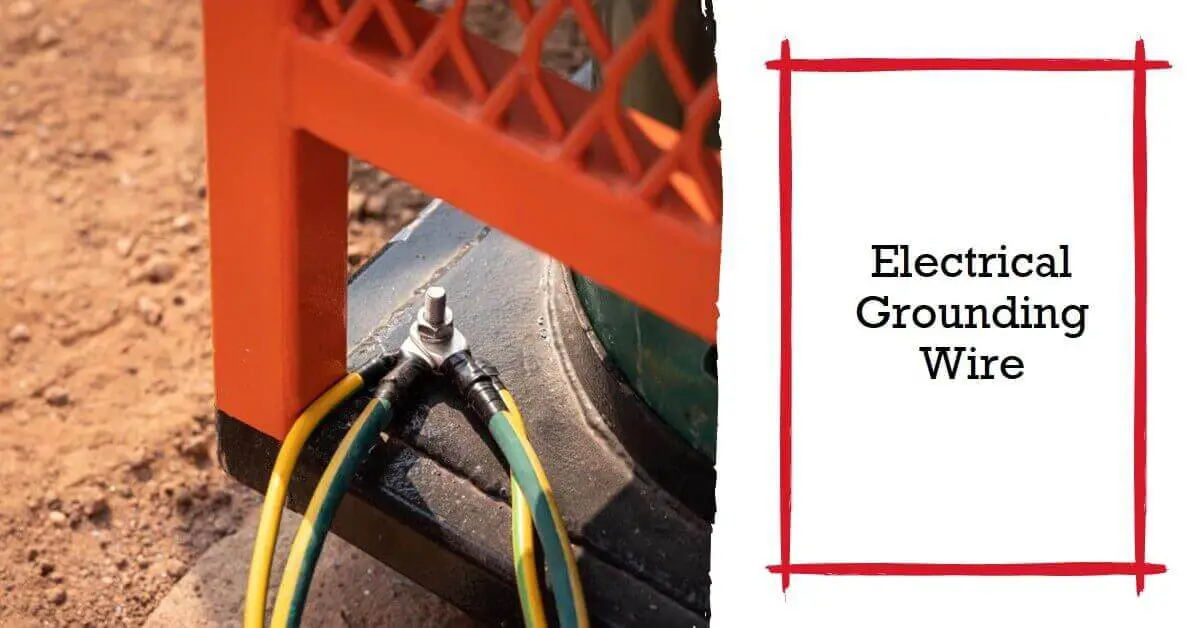Image: “Article Feature Image” by Bing is licensed under CC BY-NC-SA 4.0. Source: Bing Graphic Art. License: CC BY-NC-SA 4.0.
Ground wires play a crucial role in electrical systems, ensuring safety and protection against electrical faults.
One common question that arises is whether ground wires need to be covered. While covering ground wires can provide advantages such as physical protection, improved aesthetics, and prevention of corrosion, it is not always mandatory.
In this article, we will explore the purpose of ground wires, discuss the pros and cons of covering them, examine relevant electrical codes and regulations, provide best practices for ground wire covering, and address any exceptions or special considerations.
Understanding Ground Wires
Ground wires are an essential component of electrical systems. They are typically made of copper or aluminum and are connected to the grounding electrode system, such as grounding rods or plates, as well as to electrical devices and equipment.
Ground wires provide a low-resistance path for electrical currents to flow into the earth in the event of a fault.
Purpose of Ground Wires
Ground wires serve two primary purposes: electrical safety and protection against electrical faults.
Electrical Safety: Ground wires help prevent electric shocks by providing a safe path for electrical currents to travel into the ground instead of passing through a person or an object. This is especially important in cases where faults occur due to damaged or malfunctioning equipment.
Protection Against Electrical Faults: Ground wires help protect electrical systems by providing a path of least resistance for electrical faults, such as short circuits or lightning strikes. By promptly redirecting excess electrical energy to the ground, ground wires prevent damage to equipment and minimize the risk of fire or electrocution.
Does a ground wire need to be covered?
While covering ground wires can provide advantages such as physical protection, improved aesthetics, and prevention of corrosion, it is not always mandatory.
The primary purpose of a ground wire is to ensure electrical safety and protection against electrical faults.
As long as the ground wire is properly installed, securely connected, and meets the requirements of electrical codes and regulations, it can effectively serve its purpose without being covered.
The decision to cover a ground wire depends on factors such as the specific application, environmental conditions, and local building codes.
Ground Wire Covering: Pros and Cons
Covering ground wires can offer certain advantages, but it also presents potential drawbacks that need to be considered.
Reasons for Covering Ground Wires:
- Physical Protection: Covering ground wires with insulation or conduit can shield them from physical damage caused by accidental contact, environmental factors, or pests. This helps maintain the integrity and effectiveness of the grounding system.
- Aesthetics: In some situations, covering ground wires can improve the overall appearance of electrical installations, especially in commercial or residential settings where exposed wires may be considered unsightly.
- Prevention of Corrosion: In corrosive environments or areas prone to moisture, covering ground wires with appropriate materials can protect them from corrosion, ensuring their long-term functionality.
Potential Issues with Covered Ground Wires:
- Increased Resistance: Adding insulation or conduit around ground wires can increase their electrical resistance. This can potentially affect the effectiveness of the grounding system, as lower resistance is desirable for efficient dissipation of electrical faults.
- Difficulty in Identification: Covered ground wires may become harder to identify, especially when multiple wires are present within a conduit or when changes or modifications are required. This can lead to confusion during troubleshooting or maintenance activities.
- Heat Dissipation: If ground wires are covered with materials that impede heat dissipation, such as thick insulation, excessive heat buildup can occur. This can compromise the functionality and safety of the electrical system.
Read also my article: Ensuring Electrical Safety: Can You Leave Ground Wires Exposed?
Electrical Codes and Regulations
The installation and covering of ground wires are regulated by various electrical codes and regulations to ensure safety and compliance. The most commonly followed codes include:
- National Electrical Code (NEC): The NEC provides comprehensive guidelines for electrical installations in the United States. It specifies requirements for grounding systems, including the use of appropriate materials and installation techniques.
- Local Building Codes: Local jurisdictions often have additional regulations that govern electrical installations within their area of jurisdiction. These codes may have specific provisions regarding ground wire covering based on local environmental conditions and safety considerations.
Best Practices for Ground Wire Covering
To ensure proper installation and effective covering of ground wires, it is important to follow best practices. These include:
Recommended Covering Materials: Select covering materials that are suitable for the specific application, such as PVC conduit, flexible metallic conduit, or appropriate insulation.
Consult local codes and regulations for approved materials in your area.
Proper Installation Techniques: Follow manufacturer instructions and applicable electrical codes when installing covering materials.
Ensure that ground wires are securely fastened within the conduit or insulation, maintaining proper grounding continuity throughout the system.
Exceptions and Special Considerations
While covering ground wires is generally recommended, there are exceptions and special considerations to be aware of:
Outdoor Grounding Systems: In outdoor settings, ground wires are often left exposed for easier access, regular inspection, and maintenance.
However, additional protection measures, such as corrosion-resistant coatings, may be applied to prevent degradation.
Exposed Ground Wires in Commercial Settings: Some commercial and industrial applications require exposed ground wires for specific purposes, such as equipment grounding or static discharge.
In such cases, proper labeling and identification should be implemented to ensure safety and compliance.
Conclusion
Covering ground wires can provide physical protection, improve aesthetics, and prevent corrosion.
However, it is essential to consider potential issues such as increased resistance, difficulty in identification, and heat dissipation.
Following electrical codes, using appropriate covering materials, and adhering to best practices during installation is crucial for maintaining the effectiveness and safety of the grounding system.
you work With Electricity! Don’t leave empty-handed!
Looking to stay ahead of the game in the world of electrical engineering? Subscribe to my YouTube channel and gain access to exclusive content you won’t find anywhere else!
The staff I recommend (Amazon Affiliate Links to products I believe are high quality):
- Economy 120 Volt/60Hz AC Power Source – Step-Down Voltage & Frequency Converters 1800W
- UNI-T Digital Multimeter Tester UT139C
- 50-Amp Extension Cord for RV “100ft”
- Voltage Stabilizer 110/220v
- Hair Dryer “best selling“
- TOSHIBA EM131A5C-BS Countertop Microwave Ovens
Disclaimer: This contains affiliate links to Amazon products. I may earn a commission for purchases made through these links.


